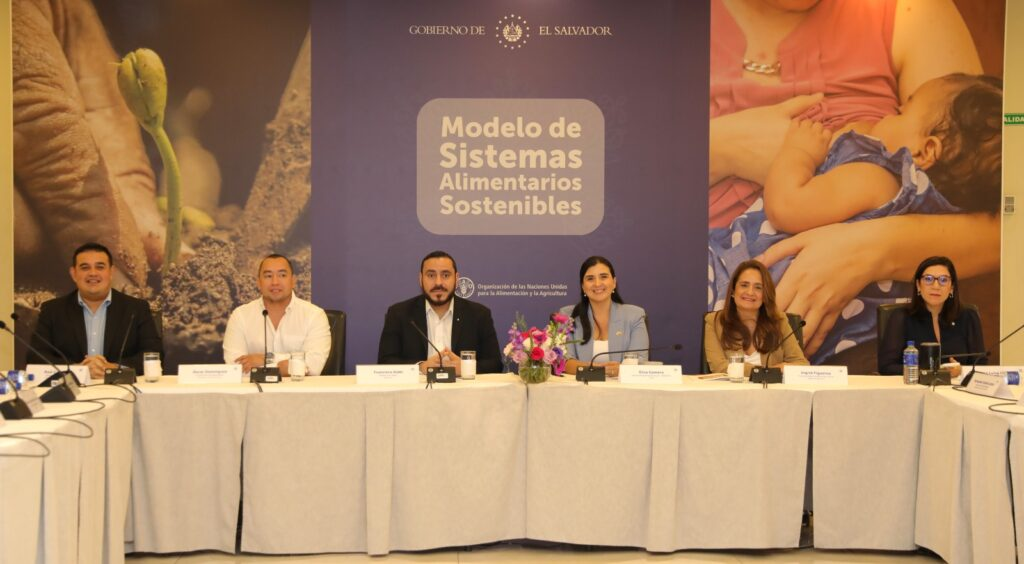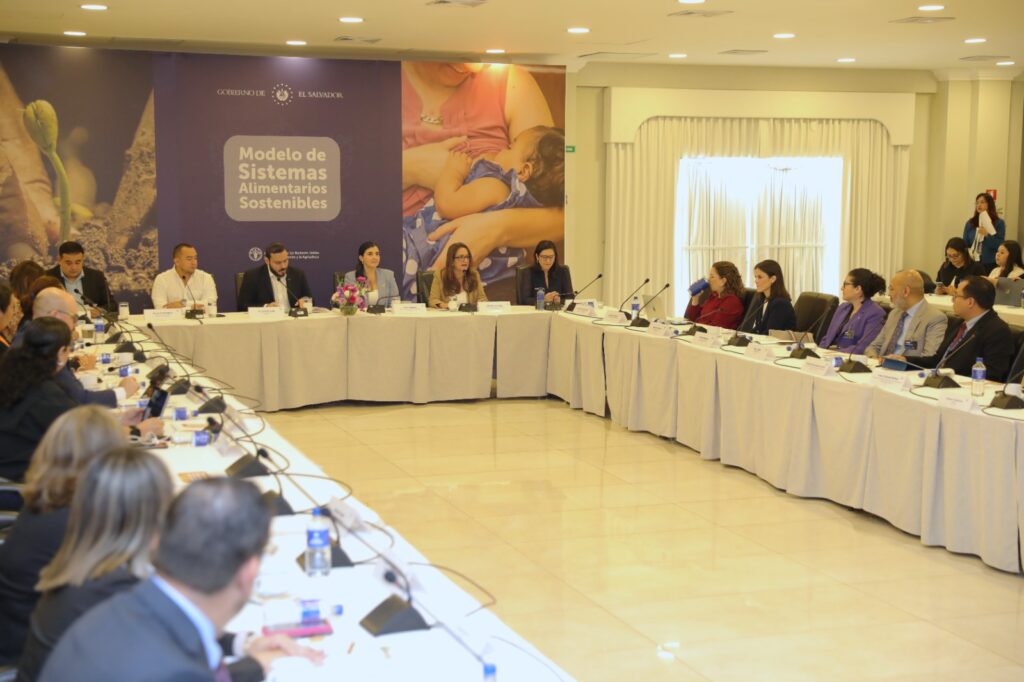
The salvadoran government continues to strengthen its commitment to food security, leading efforts to ensure the well-being and nutrition of its population. At the recent National Consultation Workshop for the validation of the Sustainable Food Systems Model 2024-2030, the country’s strategic priorities in the area of food were discussed. This event also addressed the Regional Action Plan 2024-2028 of the Food Security Policy of Central America and the Dominican Republic, highlighting the importance of aligning national goals with regional objectives.
The initiative is promoted by the Office of the First Lady of El Salvador and the Ministry of Health, in collaboration with more than 20 government institutions. These entities represent key sectors such as agriculture, environment, local development, education, economy and culture. The coordinated participation of these institutions demonstrates a comprehensive and multisectoral approach that seeks to address food security challenges from different perspectives.

The consultation also includes the active participation of civil society platforms and United Nations agencies specializing in Seguridad Alimentaria y Nutricional (SAN). These organizations contribute valuable perspectives and experience to strengthen the design and implementation of the regional plan. This consultation process seeks to enrich the Regional Work Plan by including diverse contributions, improving the capacity to respond to the needs of the Central American population.
El Salvador is committed to contributing to the development of effective regional policies through trade facilitation and cooperation with its neighbors. Among its objectives are the improvement of supply chains and the promotion of partnerships that guarantee access to safe and nutritious food. These actions are essential to boost the agricultural economy and ensure the stability of food markets.


In addition, the country is committed to technological innovation and the training of human talent in the agricultural sector. By promoting the use of new technologies, the aim is to increase the productivity and efficiency of agricultural systems. It also seeks to provide the sector with the necessary skills to face current and future challenges, ensuring sustainable and resilient development for rural communities and the country in general.







